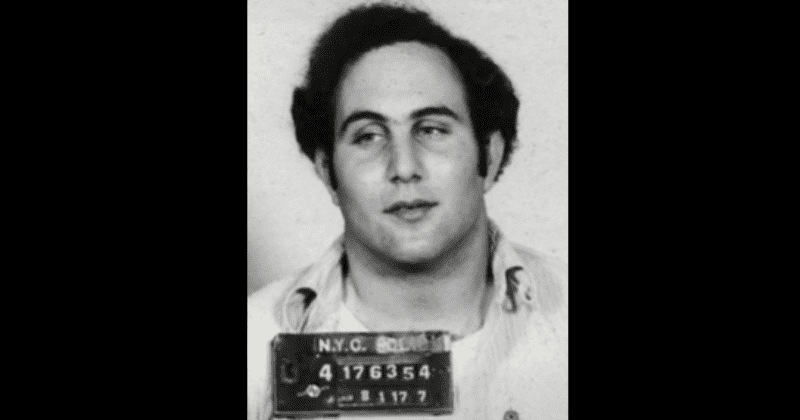Was Talking Heads' 'Psycho Killer' about David Berkowitz? Song released in 1977 just after 'Son Of Sam' arrest

Talking Heads’ hit song 'Psycho Killer' was released in the winter of 1977. Though there is no official confirmation that the number was based on David Berkowitz, many assumed it was since it came out just a few months after the serial killer was caught in August of the same year. A Rolling Stone's piece also stated, “Serial killer David Berkowitz (a.k.a. Son of Sam) terrorized New York that summer, and the track was eerily timely.”
Berkowitz, who was active from July 1976 to July 1977, claimed he murdered six young women at the request of his neighbor’s Labrador Harvey, who according to him, was a demon in the dog's body.
However, a report claimed that 'Psycho Killer' was written before anyone knew about Berkowitz who killed young women with a .44 Caliber gun. It was actually written in 1974 when David Byrne (lead vocals, guitar), Chris Frantz (drums), and Tina Weymouth (bass) were forming the band, which was later joined by Jerry Harrison (keyboards, guitar) in 1976.
But chances are there that it was chosen to be released as a single in 1977 because of its importance during an era when serial killers terrorized the US.
READ MORE
‘Revealed: The Hunt for Bin Laden’: Air date, how to live stream, plot and all you need to know about History docu
Byrne once explained the thoughts behind crafting the rock classic. He said, as per Mix Online, “‘Psycho Killer’ was written as an exercise with someone else’s approach in mind. I had been listening to Alice Cooper — Billion Dollar Babies, I think — and I thought it was really funny stuff. I thought, ‘Hey, I can do this!’ It was sort of an experiment to see if I could write something. I thought I would write a song about a very dramatic subject the way [Alice Cooper] does, but from inside the person, playing down the drama. Rather than making it theatrical the way Alice Cooper would, I’d go for what’s going on inside the killer’s mind, what I imagined he might be thinking.”

“I wanted it to be like Randy Newman doing Alice Cooper. One way of telling the story would be to describe everything that happens — ‘he walks across the room, he takes so many steps, he’s wearing such-and-such.’ That tells you everything that’s going on, on one level, but it doesn’t involve you emotionally. The other extreme is to describe it all as a series of sensations. I think that sometimes has more power and affects people a little stronger. It seemed a natural delusion that a psychotic killer would imagine himself as very refined and use a foreign language to talk to himself,” Byrne added.
Who is David Berkowitz?
Berkowitz aka the ‘Son of Sam’, was born in Brooklyn in 1953, but soon was placed for adoption. He was later raised by his adoptive parents -- Nathan and Pearl Berkowitz -- in the Bronx. According to reports, his childhood was not normal as he witnessed his mother’s death at the age of 14, he was also allegedly a serial fire starter, a bully, who reportedly killed his mother’s parakeet by giving it poison.

After high school, Berkowitz enrolled himself in the Army, but three years into it, he returned home and shifted into an apartment in Yonkers. Reports said when he was arrested on August 10, 1977, he was just 24 and worked as a postal worker. Initially, he blamed his neighbor’s dog for killing six people and injuring seven in shootings across the Bronx, Queens, and Brooklyn. Most of his targets were young women or young couples.
But later during a press conference in 1979, Berkowitz revealed that his dog story was made up by him. After his announcement, a psychiatrist named David Abramson, a psychologist who assessed him while he was still lying about the demon possession story and discovered that he was sane, penned down a piece for The New York Times. Dr Abramson wrote, “Berkowitz himself was devoted to the tale of the demons — General Cosmo and Sam Carr — who spoke to him through the medium of howling dogs. During our first interviews, they were just about all he wanted to talk about, which was itself revealing. People who have hallucinations are usually frightened enough to take no joy in discussing them. Yet whenever we got on sensitive ground, Berkowitz would retreat to that subject.”
He noted, “After just a single interview, it was clear to me that Berkowitz did not exhibit the symptoms of schizophrenia. And the clear‐headed cunning with which he had selected the time and place of his killings and eluded for a whole year the greatest police manhunt in recent memory hardly seemed to be typical psychotic behavior,” before adding, “The sessions with Berkowitz were not easy going. When I introduced certain subjects — not so incidentally, the kinds of subjects that yielded the most of value psychologically speaking — he often resisted. I wanted to know about his childhood, for example, and about his family life in search of clues to explain his behavior as an adult, but he always drifted away to talk about the demons. At one point during our second meeting, when I started to ask about his family, he interrupted angrily, ‘I have said too much already about them.’”
Berkowitz has been incarcerated since his arrest and is serving six consecutive life sentences. During the mid-1990s, he amended his confession to claim that he had been a member of a violent Satanic cult that orchestrated the incidents as ritual murder. A few law enforcement authorities have said that his claims might be credible, but he remains the only person ever charged with the shootings.










